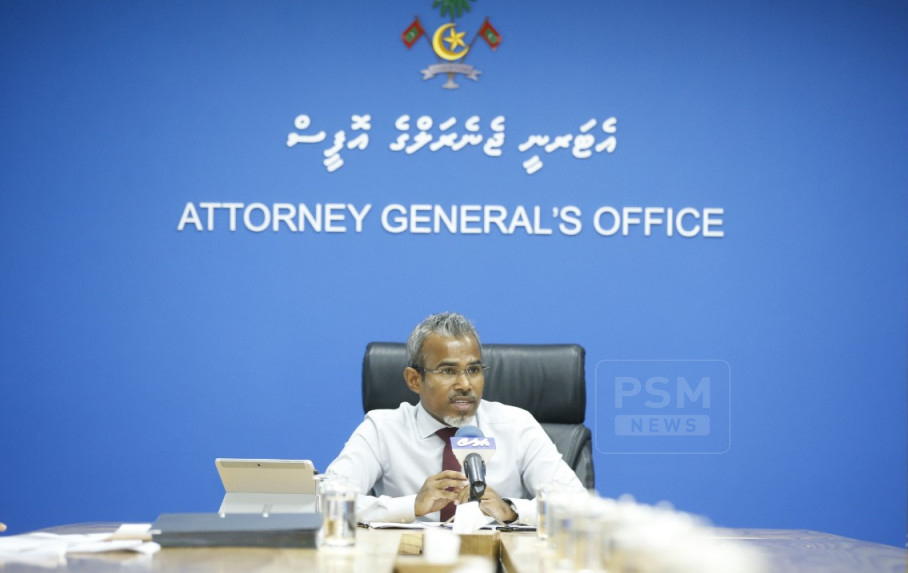Male’, Maldives – Attorney General’s Office (AGO), on Wednesday, have submitted a newly drafted Evidence Bill to the President’s Office.
The evidence law currently being practiced in the Maldives was enacted back in 1976, and contains only seven clauses highlighting two types of evidence; witness testimony and documentary evidence.
Per the AGO, the newly drafted legislature expands on the subject of material evidence including forensic evidence, video footage and photographic evidence, as well as touching upon scientific findings and the results of such analyses.
In addition, the new bill also sets the process for acquiring witness testimony, where:
In Examination Stage: witness will be questioned by the party who presented him/her as a witness.
In Cross-Examination Stage: witness will be questioned by the opposing counsel.
In Re-Examination Stage: witness will be requestioned by the party who presented him/her as a witness.
If the bill comes to pass, matters that will no longer be possible for submission are as follows:
- Conversations between spouses (spousal privilege)
- State information prohibited from release under law
- Confidential information that a state employee may be privy to in the line of duty
- Information that may identify an individual reporting a crime
- Information exchanged between a lawyer and a client (attorney client privilege)
- Conversations with parties that provide legal counsel
- Conversations between sources and journalists (source confidentiality)
According to the AGO, powers granted within the new evidence bill will extend to:
- Civil and criminal proceedings in all Maldives’ Courts of Law
- Cases heard by all tribunals in the Maldives
- Cases being investigated by the state or law enforcement agencies, to the relevant extent
- Cases investigated by state institutions with authority to take disciplinary action, to the extent relevant
Once the bill comes into effect, the Attorney General’s Office confirmed that the evidence law currently in practice, along with the present women’s testimony shall, will be rendered null and void.
The women’s testimony law establishes that testimony of women and men should be treated equally, outside of matters directly stipulated within the Holy Quran.





